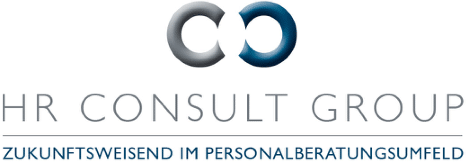It's back in fashion: appreciation in corporate culture and employee management. However, it's not just about making employees feel good. Appreciative behavior, even towards "hard-nosed" colleagues, leads to greater motivation. But this is by no means the end of the chain of positive things - it has only just begun. Those who are motivated are willing to do more. Perhaps to work overtime for once, where otherwise you would have hidden behind the rules. To "take less sick leave" and volunteer for your company. To think for yourself instead of letting others do it for you.
Now a boss might say that our employees have it good with us. They shouldn't complain, after all, they get a secure salary every month. But does the workforce see it the same way? It's worth taking a look behind the facade of the employees to see whether the well-intentioned words are being received in the same way.
The reason is quite simple: we are living in a time of demographic change. The baby boomers born between 1960 and 1970 will be available to the labor market for another 10 years, and there is already a noticeable shortage of skilled workers in many sectors. What does this have to do with appreciation? People who can choose where they work are more likely to choose an employer who values their employees. Where the boss recognizes their work, where they can feel the full meaning of praise. Where communication of appreciation is cultivated between managers, employees and business partners. Where they feel like walking through the company gate again on Monday morning and find it a shame on Friday afternoon that work is now interrupted at the weekend. Where staff turnover is lower because people feel that you mean well by them.
No manager should think that the corporate culture - whether "stinky" or appreciative - goes unnoticed by the outside world. Many companies are rated on internet portals such as kununu.de by applicants and current employees. And especially in the regional environment, word of mouth still counts for a lot. This gives potential employees a realistic picture of what to expect. If it is appealing, employees will run to you. If it is off-putting, applicants will chase after you. The degree of appreciation in the corporate culture is a key factor in which direction the pendulum swings.
About the author

Andreas Otterbach is an expert in excellence in personnel and corporate management. His focus is on personnel and organizational development, especially the development of an appreciative leadership culture. He also supports specialists and managers in individual coaching sessions.
As Professor of Business Administration and Corporate Management at Stuttgart Media University, Andreas Otterbach's research focuses on the success factors of hidden champions, particularly in terms of personnel management. Many insights can be derived from this that also benefit small and medium-sized companies. His book "Leading through appreciation" (2017) provides a good insight into this topic.
Andreas Otterbach is a business trainer and systemic coach, both certified by the German Association for Coaching and Training (DVCT). These skills enable him to work with his clients in a very personal and targeted manner.
Further stages of his education include a degree in business administration and a doctorate at the University of Bamberg. He also holds a degree in banking management.
For HR Consult Group AG, Mr. Otterbach supports the area of "Leadership through appreciation". Based on the Hidden Champions research, he supports companies and their managers in implementing an appreciative corporate and leadership culture. The group of "small global market leaders" demonstrates exceptional characteristics in these core elements, which have also led to exceptional business success. And our clients benefit from this knowledge!




